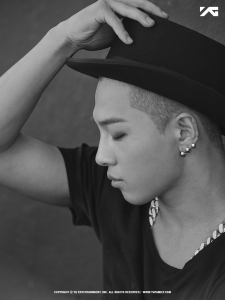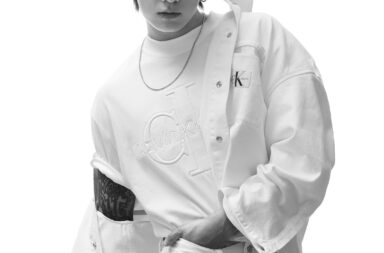 The K-pop industry has always had a troublesome relationship with the issue of plagiarisation. K-pop companies are often guilty of recycling tunes that have made it big in America, in an attempt to attain domestic success. Sometimes, what first appears as plagirisation is actually much more innocent, since in many cases K-pop companies will buy the rights to songs written by others and tweak it to suit the local market. However, when the rights have not been bought or due credit has not been given, this crosses over into the territory of plagiarism. Generally when K-pop is involved in plagiarism cases, it’s the K-pop companies who are being accused of stealing foreign ideas. However, the tables have turned in recent times, with K-pop now becoming the victim of plagiarisation.
The K-pop industry has always had a troublesome relationship with the issue of plagiarisation. K-pop companies are often guilty of recycling tunes that have made it big in America, in an attempt to attain domestic success. Sometimes, what first appears as plagirisation is actually much more innocent, since in many cases K-pop companies will buy the rights to songs written by others and tweak it to suit the local market. However, when the rights have not been bought or due credit has not been given, this crosses over into the territory of plagiarism. Generally when K-pop is involved in plagiarism cases, it’s the K-pop companies who are being accused of stealing foreign ideas. However, the tables have turned in recent times, with K-pop now becoming the victim of plagiarisation.
A number of cases have emerged within the past few months where non-Korean companies or musicians have been accused of ripping off K-pop songs and dances. Of course, there have always been cases of non-Korean artists (often Latin American, from where K-pop is loved by many) have been accused of plagiarising K-pop songs. However, the number of recent scandals shows us that the dynamics of the international music industry are rapidly changing.
 We recently learned that YG Entertainment does not mess around when it comes to cracking down on plagiarisers. An unknown and rather unskilled musician from the United States called Derrick Bullock recently released a song on YouTube (which he has since removed) called “Change Me.” He had blatantly used the instrumental music of “Eyes, Nose, Lips,” originally written by Taeyang, Teddy, Dee.P and Rebecca Johnson, and recorded himself singing over it. At first it may have seemed like a harmless cover, but after fans called him out on the similarities, Bullock added fuel to the fire by posting a description that read:
We recently learned that YG Entertainment does not mess around when it comes to cracking down on plagiarisers. An unknown and rather unskilled musician from the United States called Derrick Bullock recently released a song on YouTube (which he has since removed) called “Change Me.” He had blatantly used the instrumental music of “Eyes, Nose, Lips,” originally written by Taeyang, Teddy, Dee.P and Rebecca Johnson, and recorded himself singing over it. At first it may have seemed like a harmless cover, but after fans called him out on the similarities, Bullock added fuel to the fire by posting a description that read:
Derrick Bullock’s single (written 4 years ago contrary to popular belief) documentation and dated video feeds are available from 2008 videotaping me composing this music. It DOES NOT belong to a Korean band – it was stolen from me and used in music in Korea 4 years ago. Before you start telling Derrick he stole this music, get your facts straight. Video and paper documentation are available for proof that all rights belong to Derrick Bullock.
By writing this description, Bullock made the situation a lot worse for himself. Had he only posted his song online without any accompanying description, he would have been able to pass it off as an innocent cover if he was ever accused of plagiarism. Instead, Bullock decided to make the illogical claim that the song was 100% his own work, and that YG Entertainment, or as he put it, some “Korean band,” copied the song four years on. If that was the case, why would he only speak out about it several months after “Eyes, Nose, Lips” became hugely popular? By making this claim, Bullock well and truly stepped into the territory of plagiarism, with YG Entertainment taking decisive action and releasing the following statement:
In the recent past days, we have become aware of Derrick Bullock’s illegal use of our music and after our strong protest towards Derrick Bullock and music distribution sites, the services for his song on YouTube and iTunes have been stopped. In addition to those sites, his song will soon be removed from various other music platforms as well.
Shortly afterwards, Bullock did acknowledge that the instrumental belonged to “Taeyang, a Korean singer and actor” and promptly deleted the video. YG Entertainment has successfully tainted Bullock’s name for some time to come, but at least Bullock has gone from being a nobody to a nobody who was at least remembered for a week.
 Even huge companies like Disney Channel Argentina have become involved in plagiarising K-pop, with the 2014 release of the show “Violetta 3” bearing numerous musical similarities to K-pop songs. The most obvious instance was when they rehashed “Come Back Again,” one of Infinite’s earliest songs. The songs are so identical that when listening to them at the same time, it is hard to differentiate between the two.
Even huge companies like Disney Channel Argentina have become involved in plagiarising K-pop, with the 2014 release of the show “Violetta 3” bearing numerous musical similarities to K-pop songs. The most obvious instance was when they rehashed “Come Back Again,” one of Infinite’s earliest songs. The songs are so identical that when listening to them at the same time, it is hard to differentiate between the two.
Woollim Entertainment acknowledged this case last year but has yet to issue any legal action against Disney. In this case, it could be inferred that Disney felt they had the upper-hand over K-pop agencies due to their huge legal team and expendable cash, and hence weren’t worried about the repercussions of plagiarisation.
Additionally, it’s not just K-pop songs that are being plagiarised, but also the dances. K-pop has built up a reputation for its sharply choreographed dances, and it seems that some non-Korean performers have decided to adopt this trademark of the K-pop industry to set themselves apart in their own domestic markets.
A recent case of this is the Swedish boy band The Fooo Conspiracy, who incurred the wrath of vehement netizens by apparently plagiarising Exo‘s choreography. The dance tutorial for their song “All Over the World” shows the similarities between their choreography and Exo’s “Growl,” such as the gorilla-like arm movements in the chorus, as well as hints of some moves from the “Mama” MV and their dubstep intro video. Comparing the videos shows that although the plagiarism is not blatant like some other cases, there are some strong similarities.
[youtube http://www.youtube.com/watch?v=sZ6jg5AeTpA] [youtube http://www.youtube.com/watch?v=I3dezFzsNss]The Fooo Conspiracy have since made the familiar argument that they were simply paying homage to their seniors, with member Felix Sandman tweeting that Exo was one of many inspirations for the group. The group members of the Fooo Conspiracy are young, and the plagirisation does not seem as malicious as other cases, but this situation has certainly made sure that they will be careful to credit their inspirations in the future.
 These recent cases demonstrate the fine line between outright plagiarising something and simply gaining inspiration from it. Bullock and Disney’s cases seem to show an under-appreciation for K-pop. It seems as if anyone who has blatantly plagiarised K-pop without indicating that it is a cover or giving due credit perceives K-pop as an unpopular or unknown genre. Not realising its global reach, they assume that no one would ever call them out for their behaviour.
These recent cases demonstrate the fine line between outright plagiarising something and simply gaining inspiration from it. Bullock and Disney’s cases seem to show an under-appreciation for K-pop. It seems as if anyone who has blatantly plagiarised K-pop without indicating that it is a cover or giving due credit perceives K-pop as an unpopular or unknown genre. Not realising its global reach, they assume that no one would ever call them out for their behaviour.
Of course, this is far from the truth, and it’s what got Bullock caught for his actions. Not only are there K-pop fans all over the world these days, but people can also access material from anywhere in the world. This makes K-pop more accessible to those who may want to manipulate it for their own benefit but also makes it easier for these people to get caught since someone is always watching online.
 Small-time musicians may gain some benefit from plagirisation, such as short-term fame and notoriety, but have started their careers on a shaky footing by plagiarising from the get-go. Interestingly, these artists and companies could have actually benefited themselves if they had just admitted that they were creating a cover or were inspired by K-pop. Groups like Justice Crew and The Wanted received plenty of praise from fans for showing an appreciation of K-pop. The passion of the K-pop fandom means that non-Korean artists would immediately earn some brownie points among K-pop fans for demonstrating an appreciation of the genre, and could potentially gain a new fanbase.
Small-time musicians may gain some benefit from plagirisation, such as short-term fame and notoriety, but have started their careers on a shaky footing by plagiarising from the get-go. Interestingly, these artists and companies could have actually benefited themselves if they had just admitted that they were creating a cover or were inspired by K-pop. Groups like Justice Crew and The Wanted received plenty of praise from fans for showing an appreciation of K-pop. The passion of the K-pop fandom means that non-Korean artists would immediately earn some brownie points among K-pop fans for demonstrating an appreciation of the genre, and could potentially gain a new fanbase.
It is hard to decide what is an innocent cover, mix or sample and what is a blatant and uncredited copy of another person’s hard work, making it a difficult issue to navigate. In the past few years, it’s become clear that K-pop is now being plagiarised more and more by those who assume it’s not a well-known genre. However, with the vigilance of netizens, plagiarisers are caught quickly and can be dealt with fairly harshly. The fact that K-pop is being plagiarised more and more shows that more people are becoming exposed to the genre. Since it is now abundantly clear that K-pop is not something you can plagiarise without being caught, hopefully people will be encouraged to share ideas and inspiration in the international music community, rather than feeling the need to steal it.
(YouTube [1][2][3], Images via SM Entertainment, YG Entertainment, The Wanted Official, Woollim Entertainment)


